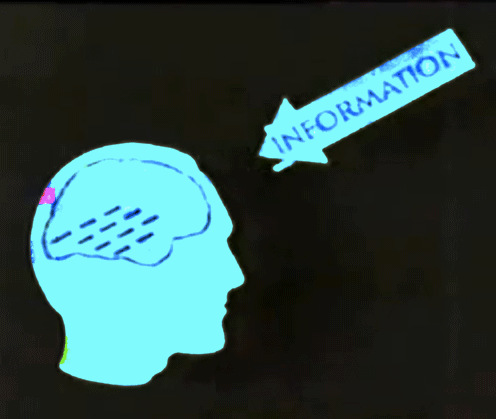The Science of Confidence

Confidence is simply defined as being self-assured and being appreciative of one’s own abilities and qualities.
We often come across people who seem to be able to interact and hold themselves in every situation without breaking a sweat. Public speakers, actors, salespeople all seem to share the same trait in common, confidence. It is rather interesting to study the differences in personality of how some people are simply able to blend and handle any situation they are thrust in.
In order to understand behavior, we need to understand the organs that are typically associated with the generation of the behaviors. The human brain is divided into different parts and it is the hypothalamus which is the management headquarters for the autonomic system. While it plays a role in controlling behaviors like sleep, hunger and sexual response its main function is to produce and react to emotions and secretions of hormones. The pituitary gland which hides in the small bone in the base of the skull is often referred to as the ‘master gland’, it produces hormones like adrenalin, responds to stress and also fights disease.
While the parts of the brain are partly responsible for the physiological aspects of confidence, it is important to know that they are psychological factors that go into building & understanding the confidence in children and adults.
We often see that children who are physically abused have low rates of self-confidence and intelligence, it is because the skulls of children are soft and any blows to the brain can cause damage to the brain. If the hypothalamus or pituitary gland suffers from a blow and some neural cells are destroyed, it can affect the emotional well-being of the child a lifetime. Neural cells of the brain are one of the few cells in our body which do not have the ability to regenerate, as a result, a blow to the brain can cause a suffering of a lifetime.
Secondly, the psychological part of the brain which is controlled by the thalamus, which is relay station that process information from the environment and stores memory has evolved to also protect the brain and body from harm. One of the way that the brain protects the body is to remember the things that have previously caused harm to the body. Since the brain is incapable of feeling pain on its own, it often relays the pain to the other parts of the body. Injury to the brain often results in a part of the body feeling pain or numbness in addition to a damping feeling of confusion in the mind.
Confidence is an individual often has a deep connection to the upbringing and the environment the person has been raised. Often the most confident individuals are those who have been raised in an emotional and physically stimulating and healthy environment will be the ones who display confidence since they have been raised to be self-assured that their actions will not be met with either rejection or harm.
A confident person has the right psychological and psychological combination of traits to feel that they have some self-worth. For children, physiologically the nutrition and exercise needed to develop both the hemispheres of the brain is an important aspect where the brain needs a healthy diet to grow physically. Psychologically children require a home where they are raised in an emotionally stable environment for their minds to understand that they matter, which is the core of confidence as a child and later on in life. While understanding the science of confidence, we often forget that society as a whole impacts how children will grow up to confident adults and which don’t. We tend to cheer those with obvious talents in sports, art or dancing and recognize them. When a child is recognized and praised for an action in childhood, the child’s brain will automatically remember that act and repeat that task for positive reinforcement. Children who are better looking than their peers also tend to get more attention which boosts their self-esteem, thus making them more confident as adolescents and adults.
On the other hand, children who grow up with criticism and abuse tend to be more shy and retiring because their minds have associated that when they are noticed, they are physically hurt and emotionally shunned. The brain is a three pound object which has the ability to analyze and react to situations from the day a child is born. It is the brain which instructs a child to cry when it is hungry so the parent will pick it up and feed it and it turns its head away when it is fed.
Confidence is something that takes years to build and can shatter in a matter of seconds. It is not something that is inherited by genes but rather it is something that the person learns from the environment. Environmental stimuli play an important role in building self-esteem and the concept of self-worth in a person. While confidence is often considered a quality, too much of it can come off as narcissistic personality trait which is not so fondly looked upon. Emotional development is a complex equation and a part of the big picture in neuropsychology where many people have researched and come up with different answers. In a world where we are trying to convince ‘designer’ babies, understand the science of what makes a person feel worthy to themselves is just another small step in understanding the science of our brain.
This post was originally written by Pere Fox Flemmer, writer at Brain Bronze. You can follow her on Twitter at @Paws_AF.


